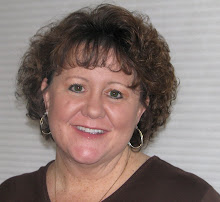The phone call to Hospice is a big step. Some think it’s a sign of losing hope, but nothing could be further from the truth.
“In fact,” says Debra Kellerman, Director of Bonner Community Hospice, “it is not uncommon for patients entering hospice to experience an improved sense of wellbeing and comfort. Sometimes this is a reflection of the patient’s sense of control over their active participation in their care.”
Hospice delivers comprehensive palliative care to patients with a prognosis of 6 months or less.
“Part of the reason those who are eligible do not call Hospice is that patients and families are not aware of nor do they understand hospice care” says Kellerman.
But ask anyone who has benefitted from Hospice services and they will tell you they were grateful for making the call to Hospice.
“A lot of people fear Hospice will come in and take over,” said Sandpoint resident Kathi Moore, who was her father Glen Newton’s caretaker after he was diagnosed with inoperable cancer in October 2007. “But I do not know how I would have done it without Hospice.”
Newton passed away last September.
“The same day he was diagnosed a Hospice staff member was there,” said Moore, who said it was extremely helpful to have them present to answer questions. “If you’ve never been in that situation you do not know what to expect.”
Moore said Hospice staff and volunteers followed her lead as to what exactly she and her family needed; never forcing decisions or ideas, but always a support.
“They stepped right in, but were never pushy,” said Moore. “They left it up to us how often they would visit and what services we utilized. And they were always at the other end of a phone call.”
She credits Hospice with helping her father make his end of life journey comfortable. They explained to the family what was happening, going through the different stages of death and grief.
“Very often hospice serves as a model for “teaching” both the patient and the caregiver how to die and how to survive the death of a loved one”, said Kellerman.
Moore is impressed with both the Hospice staff and volunteers.
"They are the most loving, compassionate people I have ever met in my life. They loved my dad dearly,” she said.
At the beginning Hospice staff and volunteers visited with Newton and Moore once a week. It increased to twice a week as their needs increased.
“They would have been there every day if we needed them,” said Moore. “He (her father) just had to say the word.”
Kellerman said that while it is the desire of most patients to die at home, home can have several different meanings.
“Home is wherever the patient calls home,” said Kellerman. “It can be in a skilled nursing facility, family home, or even on rare occasion it winds up being the hospital in the final moment.” Hospice will visit and help care for the patient wherever they reside.
Mary Cochrane, a current Hospice patient who has been under Hospice care for the last several months, said one service she values highly is the Hospice nurses who serve as a liaison between her and her doctor.
Because she is under Hospice care, Mary no longer has to go through the trouble of taking her walker, oxygen tank and finding a ride to take her to the doctor.
“They (Hospice) are there for you whenever you need them,” said Mary, who adds that they are even able to do her blood tests right at her home. “It is so convenient just to be at home.”
Mary’s caregiver, Rexcene Schendel, says she is grateful for the twice a week Hospice visits.
“They’re like an old friend coming in,” said Schendel.
Both the Moore and Cochrane families agree that Hospice also provides a tremendous amount of emotional support to the family.
Moore said Hospice wanted to make sure her father fulfilled any last wishes or goals he had yet to achieve during his lifetime.
“They asked him if there was anything he wanted to do in his life that they could still help him achieve,” said Moore. “Whatever his wishes were that is what Hospice strives for.”
Moore is sure that if it weren’t for Hospice she would have had to put her father in a nursing home. Instead, he lived with Moore and her family where they could enjoy what time he had left, and that, said Kathi, helped him live life to the fullest in the time he had left.
“I don’t think he would have lived nearly as long had he gone into a nursing home,” said Moore. “It gave us all peace of mind having him at home. The staff and volunteers at Hospice definitely made my dad’s transition to heaven very comforting. They get all of my love.”
To learn more about the services Bonner Community Hospice provides, please contact them at 208-265-1179. Bonner Community Hospice serves both Bonner and Boundary counties
Subscribe to:
Post Comments (Atom)

No comments:
Post a Comment